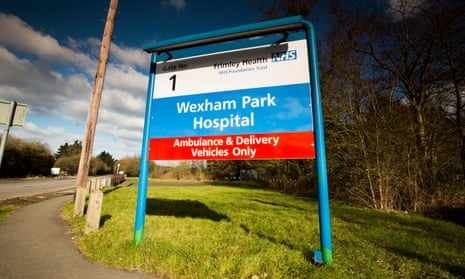A man admitted to hospital with pneumonia had his hands cuffed and legs restrained by police just minutes before he died, an inquest has heard.
Police were called by staff at Wexham Park hospital, Buckinghamshire, after the patient, Philmore Mills, allegedly became verbally aggressive with nursing staff.
Doctors had been called three times to help staff calm him down, but when none showed up two police officers and two security staff arrived on the respiratory ward.
Mills, 57, had a tumour on his lung and had been admitted to the hospital after contracting pneumonia in December 2011.
The nurse in charge on the night of his death said he appeared to be strong and not short of breath but his condition deteriorated rapidly after he was placed on the floor face down and restrained, prompting an emergency call for the crash team to resuscitate the patient.
Senior nurse Anjana Goswami told the jury at the coroner’s court in Reading that she was “so frightened” by the scene unfolding before her eyes and asked the police to remove the cuffs urgently to allow staff to put the patient back on the bed and to hook him up to the oxygen machine.
Two police officers arrived and went into the ward on their own. They then came out of the ward and returned with two security guards.
Goswami told how she waited outside the double doors of the ward while police went in to restrain the patient.
When she went into the ward to see the patient, he was being held on the floor face down in the prone position with his hands cuffed behind his back and his legs in restraints.
“I could see he was sweating, he was struggling to breathe,” said Goswami under cross-examination by Leslie Thomas, QC, for the Mills family.
“I told the police we need to put the patient first to bed; we can’t let him lie down like this, because he needs oxygen. I told police to remove the restraints, because I wanted to connect his oxygen,” she told jurors.
She feared he was so short of oxygen he was at risk of death.
“I could see he is going on hypoxia, he is not with oxygen, he is sweating, he is not responding at that time.
“I told them: ‘Could you please release his handcuff and then I made sure the patient is not moving any of the limbs at the moment, he is not responding and they say: ‘He’s OK, he’s OK’ and then they released the cuff,” she said.
She described the incident as “traumatic”. The crash team tried to resuscitate the patient but were unsuccessful.
Earlier the nurse told the coroner, Peter Bedford, she had tried to get help from doctors three times after Mills had become verbally abusive and angry with staff on the ward.
He had not been wearing his oxygen mask and he was standing up, holding his urine bag, and having a go at staff, she said.
She said he was angry, “his eyeballs were just protruding” and she was frightened of him and moved away.
She said nurses would normally try and calm patients down themselves with a cup of tea and some reassuring words. If that didn’t work, they could use a “bleep” system to find a doctor who could sedate a patient if necessary.
Although help was needed urgently, she did not get a response from doctors. She did not escalate the system to the “fast bleep” protocol, which would summon a doctor without a phone call.
“The fact is he [Mills] was in an acute state of emergency, he was not breathing … would you accept there was a failure to call the doctor?” asked Leslie Thomas, QC on behalf of the family.
“We tried three times, and the doctor said she is coming, and so we know she is coming,” said Goswami.
She said that police were briefed that the patient needed oxygen because he was hypoxic.
Pressed about her precise recollection of this, she said she did not recall doing that but her colleague may have. “I was so frightened,” she said.
Goswami told jurors that the patient had been receiving oxygen and was aware that he needed to have oxygen at all times apart from when he was eating but he removed his mask on for at least half an hour before police arrived.
She said he did not seem to be short of breath, but agreed with counsel for the Mills family that lack of oxygen could cause confusion in a patient.
She told Thomas that he had been shouting at staff, that he had screamed and had a high tone in his voice.
Pressed on her claims that the patient was confused, she said: “He wasn’t confused before [the restraints were placed on him], he was confused at the time of the incident.”
Mills died while being treated for pneumonia on the respiratory ward at Wexham Park hospital on 27 December 2011. He had previously been submitted to the intensive care unit where a malignant tumour was found on his right lung along with the presence of blood clots.
The inquest continues.
